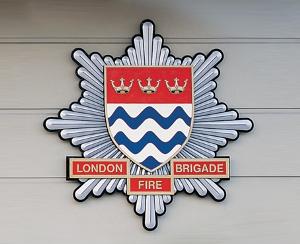I disagree with the idea that properties let out through peer-to-peer holiday lettings platform Airbnb are not subject to the same legislation as a ‘standard’ B&B.
In fact, the former Fire Safety Minister, Brandon Lewis MP, actually confirmed as much: “The Fire Safety Order applies to all those offering accommodation to paying guests in their homes, irrespective of the business model being used to market the accommodation.”
This therefore confirms that the Fire Safety Order 2005 does cover premises let to paying guests on ‘short-term online rental company’ (STORC) websites such as Airbnb, Wimdu, HouseTrip, OneFineStay and others.
I commented on the Airbnb controversy in an IFSEC Global article in September.
The issue here is how Fire and Rescue services (FRS) come to know of these premises and whether they are part of the FRS risk-based inspection programme (RBIP) they are required to have. FRS have to balance their resources to ensure they are targeting the premises most at risk.
LFB RBIP is predicated on targeting premises where the relative risk is highest by giving each of our recorded properties a risk score based on factors that include:
- Type of structure
- Nature of occupants
- Location
- Access
- Operational needs
- Safety of firefighters
Each premises receive a risk score that includes any enforcement action that should be considered and, secondly, how often they are to be inspected in the future.
Therefore if a STORC premises is inspected, the inspecting officer may determine that it should be included on our programme and, dependent on the conditions identified, a score would be applied.
So we apply the same approach (advisory/support or enforcement) for premises we identify as STORC as we do for similar premises advertised by more traditional means.
Alongside this programmed work we have a strategic inspection programme based on fire and enforcement data that allows us to further analyse trends or the frequency of specific incidents in order to target certain premises.
Neither of these approaches or assessment of risk has identified either STORC premises, or indeed guest house or bed and breakfast accommodation, as necessary targets for inspection. In fact, in 2013 we only have records of one fire at a bed and breakfast in London.
Given there are potentially 750,000 premises within London where fire safety regulation could apply, we have to balance our resources to ensure we have the greatest impact on risk reduction across London. This must take into account the most vulnerable people in our community.
In view of what our data and local officers can tell us, we are satisfied that the current system of inspection is appropriate as it continuously responds to changes in data and any emerging trends using a recognised national matrix system.
2023 Fire Safety eBook – Grab your free copy!
Download the Fire Safety in 2023 eBook, keeping you up to date with the biggest news and prosecution stories from around the industry. Chapters include important updates such as the Fire Safety (England) Regulations 2022 and an overview of the new British Standard for the digital management of fire safety information.
Plus, we explore the growing risks of lithium-ion battery fires and hear from experts in disability evacuation and social housing.

